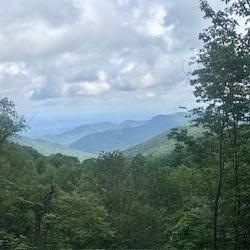One of more memorable experiences I had with my District Committee of Ordained Ministry during seminary was a discussion around my theology. Being a very liberal seminary, I had been exposed to several theological orientations that were outside the normal dead white Europeans that my church was accustomed to. Feminist, Eco, Queer (this was not quite a thing yet), and Open Theism immediately put me at odds with my church and I was called theologically transient. I would argue that Wesleyanism is and can be theologically diverse.
In this post, I want to explore several traditions that Wesley would have bumped up against in his travels in England and America. The traditions that most influenced Wesley’s were the Church of England, the Puritans, the Pietists from Halle, the Roman Catholics and the Moravians. The first four traditions influenced Wesley’s decision to go to Georgia and his early missiology. Yet on the voyage and during the next five years of his life, the Moravians would influence not only his missiology, but his personal, professional and spiritual life.
John Wesley’s Moravian experience
Perhaps the most memorable Moravian experience was when Wesley had his heart “strangely warmed” at Aldersgate. This transformative experience would forever shape and change the direction of Wesley’s ministry. Peter Bohler, a close friend was a Moravian is credited with the line, “preach until you have faith.”
The Moravians are a Protestant church founded in the 18th century but tracing its origin to the Unitas Fratrum (“Unity of Brethren”) of the 15th-century Hussite movement in Bohemia and Moravia. A predecessor to Luther’s movement by 100 years, the Moravians believe in standing for basic religious principles.
Wesely’s theology, spirituality and format of ministry would be influenced by his time with the Moravians. According to Julian Pace IV, “Wesley appropriated a modified version of the Moravian band system for his own Methodist program, embodied the “heart religion” of the Moravians, and his desire to see the Church return to a more “primitive” Christian practice was strengthened due to sustained contact with the Moravians.”
John Wesley’s Experiences in Georgia
John Wesley would go on a mission trip to Georgia with the hopes of evangelizing to the Native population there. To sum up his experience though, it was a failure. He would get wrapped up in a romantic relationship that would go sideways, and he would have to return to England because of this scandal.
The Native population that Wesley was going to minister to was the Was Cherokee Tradition. By time Wesley would arrive in Georgia, the Cherokee had aligned themselves with the British for trading and military affairs. An agrarian people, a well-known tradition is the Green Corn ceremony. John Wesley’s approach with the Cherokees was indicative of the overall English and later American experience with not only the Cherokee’s but other tribes, “After he had met with some Native Americans, he was very severe with them. He said, “They are liars, thieves, and murderers. They murder their own babies, and they murder their own parents! They do not wish to learn and are not willing to be taught.”
John Wesley’s views would evolve as he spent more time with the Cherokee people. His respect for their culture and custom would grow. He would also eventually come to recognize their intelligence, spirituality, and resilience. He also acknowledged the challenges they faced, including the encroachment of European settlers and the loss of their land. While Wesley continued to believe in the importance of Christian conversion, he became more open to cultural exchange and dialogue. He emphasized the need for missionaries to learn from the Cherokee people and to adapt their approach to their unique circumstances. It is unlikely 18th century Wesley’s faith was impacted by the faith traditions he experienced with the Cherokee.
Another cultural experience that Wesley would have had in Georgia was his exposure to slavery. The African people who were brought to America had their own tribal traditions, values and languages that would eventually be appropriated into their Christian faith.
Wesley’s exposure to slavery had a profound impact on his views. Initially, he accepted slavery as a part of the social and economic order of the time. However, as he spent more time in Georgia, he began to question the morality of the practice. He observed the injustice and cruelty of slavery and came to believe that it was incompatible with Christian principles.
While Wesley did not immediately become a vocal abolitionist, his experiences in Georgia laid the groundwork for his later opposition to slavery. He eventually wrote and preached against slavery, arguing that it was a violation of human rights and a sin against God. His writings and sermons helped to raise awareness of the issue and contributed to the growing abolitionist movement in England. Given his English views of Africans and his role of a minster in the 18th century, it is unlikely his exposure to the native traditions impacted his faith.
How Deep Ecumenism/ Pluralism Influence/Deepen our Spiritual Journeys?
In the section above, we can observe how cultural exposure impacted the future of Methodism. While we are uncertain of the influences the Cherokee or Native Africans had on Wesley’s faith, it can be safely assumed he was exposed to these traditions. From these experiences, we can learn that our faith does not exist in a vacuum. In college, I was first exposed to pluralism through the dialogues (interfaith dialogue) between Thomas Merton, Thich Nhat Hahn, and the Dalai Lama. These experiences changed my spirituality forever.
Let’s define a few terms:
“Religious pluralism is the state of being where every individual in a religiously diverse society has the rights, freedoms, and safety to worship, or not, according to their conscience. This definition is founded in the American motto e pluribus unum, that we, as a nation, are gathered together as one out of many”
“The term ‘Interfaith Dialogue’ refers to the positive and cooperative interaction between people of different religions, faiths or spiritual beliefs, with the aim of promoting understanding between different religions to increase acceptance and tolerance”
A concept formulated by Mathew Fox which suggests the interrelatedness of all the world’s religions and how we can learn from them all. Also, the idea that all the world religions lead to the path of the One.
The world is a very diverse place right now. One of my students recently used the term “melting pot” to describe our country. I had to correct them, offering that this term while it may seem innocuous, is actually quite demeaning. We are not a country of one, we are a country of many diverse cultures and religious traditions. Diwali, while one I have never been part of the celebrations, is one of my absolute favorites to talk about and teach about to my students.
The spiritual practices of listening, connection and hospitality come to mind when cultivating an awareness of deep ecumenism and pluralism in our spiritual walk. When we open our hearts and minds to people of other faiths and traditions into our spiritual journey, the experience becomes richer, more embodied.













